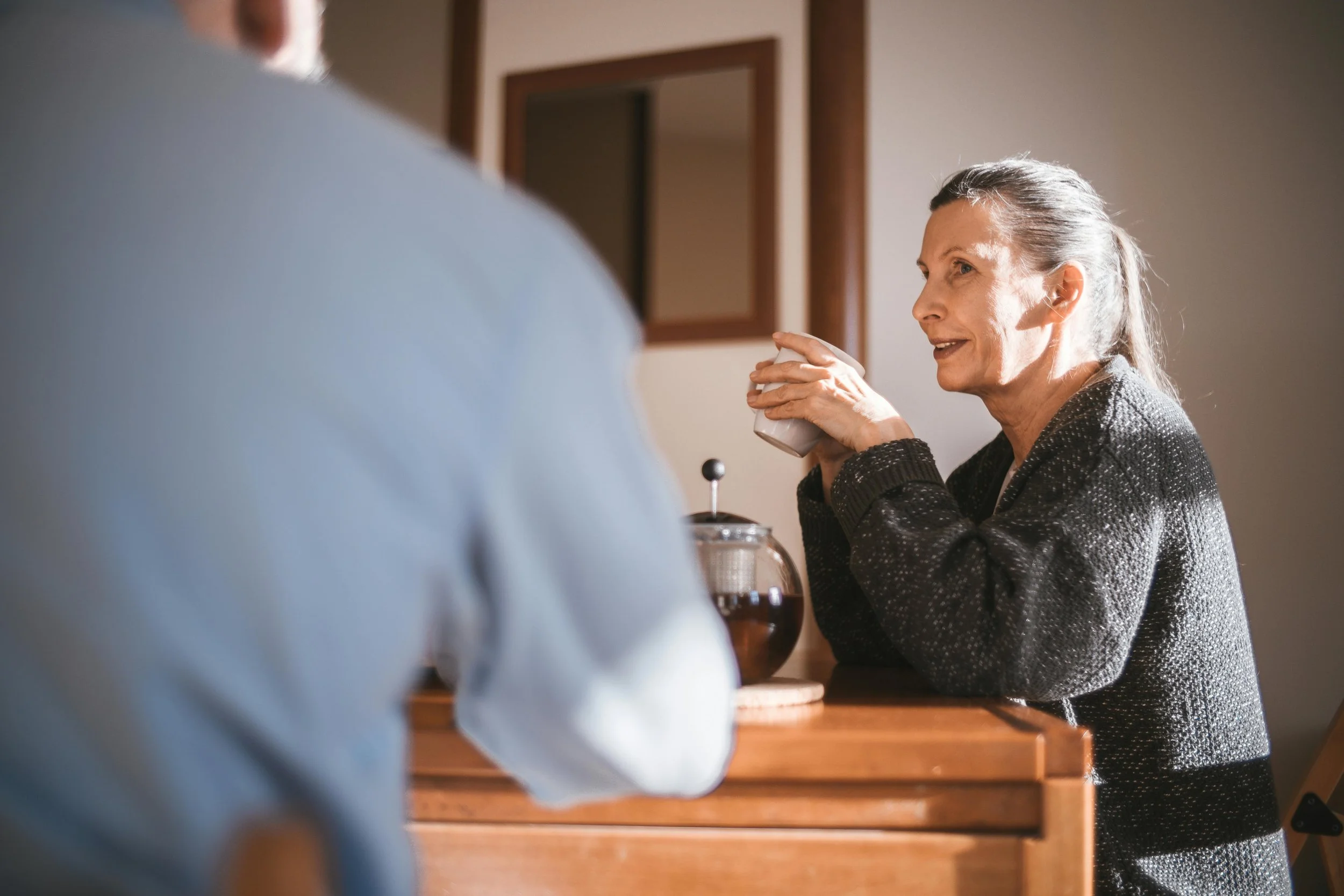Helping Loved Ones Hear—and Feel—More Connected
Hearing loss can quietly affect more than just sound—it touches relationships, social opportunities, safety, and even brain health. Whether you’re noticing changes in your own hearing or supporting someone who is, small everyday changes can make a big difference.
This month, I’m sharing practical tips from the audiology team at Midwest Medical Specialists, along with some important research on why hearing health matters more than we may realize.
💬 Everyday Strategies for Better Communication
These simple tips can help reduce frustration, increase connection, and make conversations smoother for everyone involved.
1. Get Their Attention First
If you're the one with hearing loss, it’s okay to let people know you need a heads-up before they start talking. If you're speaking to someone else, gently get their attention before you begin—this can make all the difference.
2. Be Thoughtful About Seating
Whether at a restaurant or family gathering, choose seats that minimize background noise. Sit away from clattering kitchens or the kids’ table, and close to people who are easier to hear or understand.
3. Walk Before You Talk
Instead of shouting from across the room, move closer to the person you're speaking to. This helps with both hearing and lipreading—and feels more respectful.
4. Lower Background Noise
Turn down the TV, wait to run the dishwasher, or guide noisy play to another room. Quiet environments create space for better listening.
5. Let There Be Light
Good lighting helps people read lips, catch facial expressions, and follow conversations more easily. Make sure your face is clearly visible while speaking.
6. Speak Clearly, Not Louder
Instead of raising your voice, slow down and enunciate. For many, clarity and pacing are far more helpful than volume.
7. Rephrase Instead of Repeating
If someone doesn’t catch what you said, try saying it differently rather than repeating the same phrase louder. Some words and sounds are easier to understand than others.
8. Request Quiet Tables in Public Spaces
In restaurants, ask to be seated away from the bar, kitchen, or speakers. A quieter table makes conversation more enjoyable and less tiring.
Bonus Tip: Never Say "Never Mind"
If someone asks you to repeat something, avoid brushing it off. Saying “never mind” can feel dismissive and isolating. Everyone deserves to be part of the conversation.
🧠 Hearing Health = Whole-Body Health
Hearing loss affects more than just communication—it’s linked to:
🚶♂️ Increased Fall Risk
Studies show untreated hearing loss can increase fall risk by over 50%, due to reduced awareness and increased mental effort required just to listen. (JAMA Otolaryngology, 2024)
🧠 Cognitive Decline & Dementia
Hearing loss is one of the strongest modifiable risk factors for dementia. Johns Hopkins research found:
Mild loss doubles dementia risk
Moderate loss triples it
Severe loss increases it fivefold
Other large-scale studies report up to a 56% increase in Alzheimer’s risk for those with untreated hearing loss—and show that using hearing aids can significantly reduce that risk.
👂 What You Can Do
Whether you're noticing signs in yourself or someone close to you, here are a few empowering steps:
✅ Schedule a Hearing Evaluation
Start with a hearing test from a licensed audiologist. Even if the changes feel minor, early detection leads to better outcomes.
🎧 Consider Hearing Helpers
Depending on the level of need, hearing aids or simpler hearing amplifiers can make a world of difference. They help reduce fatigue, improve safety, and support brain health.
👉 Here’s one well-reviewed personal sound amplifier I recommend.
💬 Start the Conversation
It’s not always easy to talk about hearing changes, but it’s a sign of care and respect. Try: “I’ve noticed it’s been harder to hear in groups—have you felt that too? Maybe it’s time to get it checked.”
Or if you’re experiencing it yourself: “I think I’m missing more than I used to. I’d like to get my hearing checked so I can stay connected and confident.”
👥 Hearing Well = Living Fully
Communication is at the heart of relationships. By making small adjustments—like seating, lighting, and speech habits—and addressing hearing concerns early, you open the door to more confident conversations, less frustration, and better health outcomes.
Whether you're living with hearing loss or walking alongside someone who is, know this: you’re not alone, and support is available.
Let’s make space for better connection—one conversation at a time.
